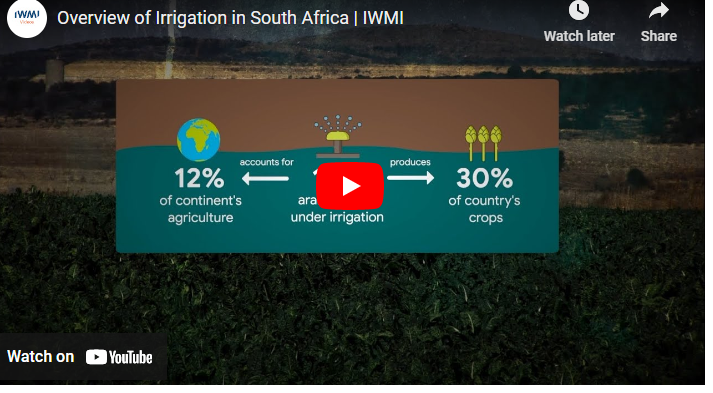Compulsory vaccines for broilers are essential for ensuring the health and welfare of chickens raised for meat production. These vaccines protect the birds from various diseases and viruses, including Marek’s disease, Fowl pox, and Newcastle disease.
The vaccines are typically administered to the birds at various stages of their growth and development, with the exact schedule varying based on local regulations and the specific vaccines being used.
Therefore, this informative piece is dedicated to compiling the compulsory vaccines for broilers including important information you need to know.
Compulsory Vaccines For Broilers [All You Need To Know]
Vaccination is a crucial aspect of broiler management and has a significant impact on the health and well-being of the birds. Here are ten of the compulsory vaccines for broilers:
Read Also: Avian Influenza Disease In Poultry Farm And How To Treat With Herbs
#1. Marek’s Disease Vaccine
Marek’s disease is a common viral infection in broilers that can cause tumors and nerve damage. This vaccine helps to prevent the spread of the disease and is usually given at 1 day old.
#2. Newcastle Disease Vaccine
Newcastle disease is a highly contagious viral infection that can cause severe respiratory and nervous symptoms in broilers. The vaccine is usually given at 1 day old and then again at 3-4 weeks old.
Read Also: Coccidiosis Diseases in Poultry Farms and How To Treat With Herbs
#3. Infectious Bronchitis Vaccine
Infectious bronchitis is another respiratory disease that can cause severe respiratory symptoms and decreased egg production in broiler layers. The vaccine is usually given at 1 day old and then again at 3-4 weeks old.
#4. Avian Influenza Vaccine
Avian influenza is a highly contagious viral infection that can cause severe respiratory symptoms, decreased egg production, and death in broilers. The vaccine is usually given at 1 day old and then again at 3-4 weeks old.
Read Also: 20 Common Diseases In Poultry Farm
#5. Fowlpox Vaccine
Fowlpox is a viral infection that can cause skin lesions and decreased egg production in broiler layers. The vaccine is usually given at 1 day old and then again at 3-4 weeks old.
#6. Mycoplasma Gallisepticum Vaccine
Mycoplasma gallisepticum is a bacterial infection that can cause respiratory symptoms and decreased egg production in broiler layers. The vaccine is usually given at 1 day old and then again at 3-4 weeks old.
#7. E. Coli Vaccine
coli is a bacterial infection that can cause severe diarrhea and death in broilers. The vaccine is usually given at 1 day old and then again at 3-4 weeks old.
Read Also: 12 Poultry Farming Tips For Beginners [Success Guide]
#8. Salmonella Enteritidis Vaccine
Salmonella Enteritidis is a bacterial infection that can cause severe diarrhea and death in broilers. The vaccine is usually given at 1 day old and then again at 3-4 weeks old.
#9. Clostridium Perfringens Vaccine
Clostridium perfringens is a bacterial infection that can cause severe diarrhea and death in broilers. The vaccine is usually given at 1 day old and then again at 3-4 weeks old.
#10. Pasteurella Multocida Vaccine
Pasteurella multocida is a bacterial infection that can cause severe respiratory symptoms and death in broilers. The vaccine is usually given at 1 day old and then again at 3-4 weeks old.
It is important to note that the specific type of vaccine and the timing of vaccination may vary depending on the location and specific strain of the disease, as well as the age of the birds.
Read Also: Disease Prevention and Control In Nigeria Poultry PDF
A veterinarian or poultry specialist should be consulted to determine the most appropriate vaccine protocol for a particular flock.
Benefits of Compulsory Vaccines for Broilers
Vaccines help protect broilers from common diseases and can reduce the need for antibiotics, which can help prevent the development of drug-resistant bacteria.
Here are some additional benefits of compulsory vaccines for broilers:
1. Improved Welfare
Vaccines can help keep broilers healthy, reducing the risk of disease, which can improve their welfare.
2. Reduction in Economic Losses
Vaccines can help reduce economic losses caused by disease outbreaks.
Read Also: [Beginners Guide] How to Raise Broiler Chicken in Ghana
3. Improved Meat Quality
Vaccines can help reduce the risk of contamination and spoilage of meat and poultry products, improving the quality of the final product.
4. Increased Production Efficiency
Vaccines can help protect broilers from disease, helping them to reach their full potential of production efficiency.
5. Improved Biosecurity
Vaccination can help reduce the risk of disease spread between birds, improving biosecurity.
6. Improved Public Health
Vaccines can help protect the public from zoonotic diseases and food-borne illnesses.
Potential Risks and Side Effects of Vaccination
Potential risks and side effects of vaccination vary depending on the vaccine and the individual receiving it. Generally, the risks and side effects of vaccines are minor.
Common side effects of vaccination may include redness or soreness at the injection site, mild fever, and body aches.
More serious side effects are rare but may include a severe allergic reaction known as anaphylaxis, which can lead to difficulty breathing and a drop in blood pressure.
More so, a vaccine can cause a weakened form of the disease it is meant to prevent, known as vaccine-associated adverse events.
Those considering vaccination need to speak with their healthcare provider to discuss any potential risks and side effects.
In addition, individuals should be aware of the potential risks and side effects before receiving any vaccine.
Practical Tips for Vaccinating Broilers
1. Utilize an Appropriate Vaccine Program
Ensure that an appropriate vaccination program is in place for broilers. This should include vaccinations for major poultry diseases and should be tailored to the specific needs of the farm.
2. Ensure Cleanliness
Ensure that the birds, housing, and equipment are all clean before vaccination. This will aid in limiting the spread of disease among the birds.
3. Choose The Right Vaccine
Select a vaccine that is specific to the bird’s age, breed, and environment.
4. Store Vaccines Appropriately
Vaccines should be stored in cool, dark places and kept away from direct sunlight and high temperatures.
5. Administer The Vaccine Correctly
Ensure that the vaccine is administered correctly and at the correct time.
6. Monitor For Side Effects
Monitor for any side effects or adverse reactions in the birds after vaccination.
7. Practice Good Biosecurity
Good biosecurity practices should be followed at all times, including when vaccinating birds. This includes disinfecting equipment and housing between birds and maintaining the cleanliness of the farm.
Cost of Compulsory Vaccines
The cost of compulsory vaccines for broilers can vary depending on the type of vaccine and the number of birds being vaccinated. Generally, the cost of the vaccine will be lower if a large number of birds are vaccinated at one time. Vaccination costs can also be reduced by sourcing vaccines from a reliable supplier.
Vaccine Schedule for Broilers
A vaccination program for broilers is an important component of keeping broilers healthy and productive. Vaccines are an effective way to protect chickens against many common diseases.
Vaccines can reduce the severity of some diseases and can even help to prevent them from occurring. To ensure that chickens are properly vaccinated and that the vaccine is effective, it is important to follow a regular broiler vaccine schedule.
The broiler vaccine schedule should be tailored to the specific needs of the broiler flock. For example, young chicks should receive vaccines for Newcastle Disease, Infectious Bronchitis, and Marek’s Disease, while older birds should receive additional vaccines for Avian Influenza and Mycoplasma.
Vaccines should be administered at specific times during the broiler’s life cycle, such as day-old chicks, at 6-8 weeks of age, and at 12 weeks of age or later.
The vaccines should be administered by a qualified veterinarian or poultry technician.
In addition to the actual vaccines, it is also important to monitor the health of the broiler flock regularly.
Regular health checks should include monitoring for parasites and signs of disease. If any signs of disease are present, the birds should be immediately treated and monitored
4 In 1 Vaccine For Chicken
4 In 1 Vaccine for Chicken is a revolutionary innovation in the poultry industry. It is a combination of four vaccines that protect chickens against four major diseases, namely, Newcastle disease, fowl pox, infectious bronchitis, and avian influenza.
This vaccine helps to reduce the risk of disease outbreaks, loss of production, and mortality in chickens, as it boosts their immunity against these diseases.
It is safe, highly effective, and easy to administer, making it a popular choice for poultry farmers. It is also relatively affordable, making it a cost-effective solution for farmers.
4 In 1 Vaccine for Chicken has revolutionized the poultry industry and is helping to protect and promote the health of millions of chickens worldwide.
How Often Do Chickens Need To Be Vaccinated
Chickens need to be vaccinated regularly to stay healthy. Vaccines help protect chickens from diseases that could otherwise be deadly.
Depending on the type of vaccine and the breed of chicken, the frequency of vaccination can vary.
Generally, chickens should be vaccinated every 3-4 months. Some vaccines may be given every 6 months or annually.
Pros And Cons Of Vaccinating Chickens
Pros of vaccinating chickens include protecting them against common diseases, reducing the risk of the spread of infectious diseases, and reducing the need for antibiotics.
Vaccines can also help reduce the cost of veterinary care. Vaccines can be an effective way to protect chickens from disease, as long as they are properly administered.
Cons of vaccinating chickens include the cost of the vaccines and the risk of side effects. Vaccines can be costly, and some chickens may not respond well to certain vaccines. Additionally, there is always a risk of an allergic reaction or another side effect from the vaccine.
Chicken Vaccines Tractor Supply
Chicken vaccines are widely available from many sources, including Tractor supplies.
Tractor Supply carries a wide range of vaccines for chickens, including Marek’s Disease, Newcastle Disease, and Mycoplasma Gallisepticum.
Vaccines are typically sold in packs of 10 doses, and prices vary depending on the type of vaccine.
5 Things To Do When Doing Poultry Vaccination
1. Research
Ensure you are aware of the various poultry diseases and the available vaccines. Research the appropriate dosage, route of administration, and frequency of vaccination.
2. Prepare
Gather all the necessary materials, including the vaccine and syringes. Ensure that the vaccine is stored and handled according to the manufacturer’s instructions.
3. Vaccinate
Administer the vaccine according to the manufacturer’s instructions. Ensure that the vaccine is injected into the correct site on the bird.
4. Monitor
Monitor the birds for any adverse reactions and report them to the manufacturer or your veterinarian.
5. Record
Record the date and type of vaccine administered, the bird’s age, the route of administration, and any adverse reactions.
Where To Buy Chicken Vaccines
Chicken vaccines are available from most pet stores, feed stores, and online retailers. It is important to purchase the correct vaccine for your birds and to ensure that it is not expired. It is also important to check the manufacturer’s instructions for the storage and handling of the vaccine.
Broiler Medication Program
Broilers need to be vaccinated against a variety of diseases, including Marek’s Disease, Newcastle Disease, Infectious Bursal Disease, and Avian Influenza.
The most effective way to protect your birds is to develop a comprehensive medication program.
This should include the appropriate vaccines and dosages, the route of administration, and the frequency of vaccination.
Broiler Vaccine Name
Some of the most common vaccines used for broilers include:
- Newcastle Disease Vaccine
- Infectious Bursal Disease Vaccine
- Avian Influenza Vaccine
- Marek’s Disease Vaccine
Conclusion
In conclusion, vaccination is an essential aspect of broiler management that can help to prevent the spread of disease and improve the overall health and productivity of the birds. By ensuring that broilers are vaccinated against the ten compulsory vaccines outlined above, you can minimize the risk of disease and ensure a healthy and profitable flock.



